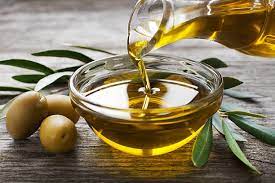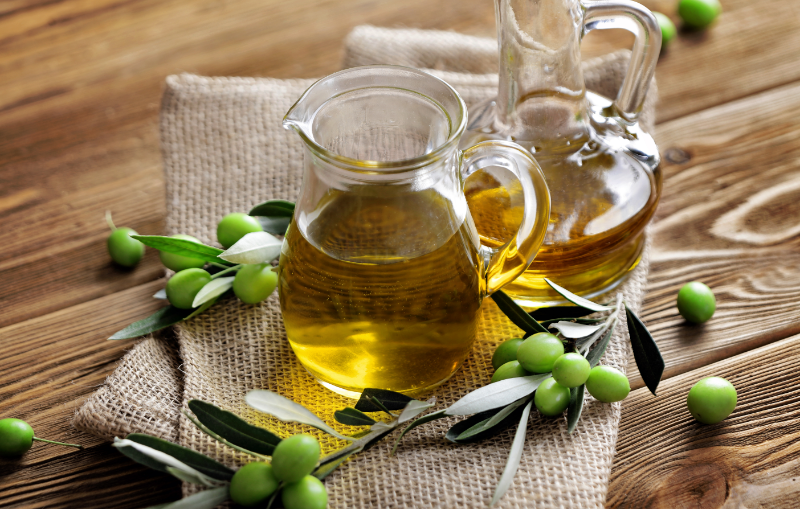Extra virgin olive oil, often referred to as EVOO or “liquid gold,” is a staple of culinary traditions around the world, prized for its rich flavor, versatility, and health benefits. But this extraordinary elixir has a history as vibrant and complex as its taste.
From ancient civilizations to modern kitchens, the story of olive oil is one of culture, commerce, and craftsmanship.
This magical oil is well known in the Mediterranean, European and Middle Eastern regions, with Greece being the largest consumer per capita. The United States is the new kid on the block in relation to how long olive oil has been around. Let’s see more about this “liquid gold.”
Ancient Roots and Mythical Beginnings
The history of extra virgin olive oil can be traced back to the ancient civilizations of the Mediterranean. The olive tree (Olea europaea) is believed to have originated in the region now encompassing modern-day Greece and Turkey, and its cultivation dates back thousands of years.
Extra virgin olive oil held a special place in the cultures of ancient Greece and Rome, where it was not only a dietary staple but also revered for its symbolic, medicinal and religious significance. The olive tree is said to be one of the first plants cultivated by man about 5,000 years ago.
In Greek mythology, the goddess Athena is said to have gifted the olive tree to the city of Athens, resulting in a sacred bond between the tree and the people. The oil extracted from those trees was not just sustenance, it was used in religious ceremonies, as fuel for lamps, as a lubricant and for medicinal purposes to name a few.
From Medicine to Cuisine:
As ancient civilizations traded and interacted, the knowledge of olive oil cultivation and extraction spread throughout the Mediterranean region and beyond. It became a key ingredient in culinary practices, enhancing flavors and textures in a wide array of dishes.
The Romans, renowned for their engineering prowess, improved olive oil production techniques, introducing innovations like the screw press to extract oil more efficiently. Extra virgin olive oil also found its way into the field of medicine. Ancient Greek physicians, including Hippocrates, recognized its potential health benefits, using it as a base for ointments and as a remedy for various ailments.
A Precious Commodity
Extra virgin olive oil’s popularity and value led to the establishment of extensive trade networks. The Phoenicians, skilled seafarers and traders, played a pivotal role in spreading the use of olive oil throughout the Mediterranean basin. As the Roman Empire expanded, so did the demand for this prized commodity. Extra virgin olive oil became a significant item of trade, contributing to the prosperity of regions that cultivated olives.
The Renaissance and Beyond
The fall of the Roman Empire marked a period of upheaval, but extra virgin olive oil endured. With the advent of the Renaissance, the appreciation for culinary arts and the revival of classical knowledge led to a resurgence in the use of extra virgin olive oil. The Renaissance not only rekindled interest in Mediterranean cuisine but also encouraged the cultivation of olive trees in new regions, including Spain, North Africa and the Middle East.
Modern Olive Oil Production and Quality
Today, extra virgin olive oil continues to be a vital component of global cuisine and a cornerstone of the Mediterranean diet – a dietary pattern recognized for its health benefits. The process of extra virgin olive oil production has evolved with advancements in technology, allowing for greater efficiency while preserving the essence of traditional methods.
However, the olive oil industry has faced challenges, including issues of quality and authenticity. Adulteration and mislabeling have raised concerns among consumers seeking genuine, high-quality extra virgin olive oil. Organizations and regulatory bodies have stepped in to establish standards and certifications that guarantee the authenticity and quality of olive oil products.
A Living Legacy
The history of extra virgin olive oil is a tapestry woven with threads of culture, commerce, and tradition. From ancient rituals to modern-day kitchens, extra virgin olive oil has transcended time and geography, leaving an indelible mark on human civilization. Its journey from myth to mainstream has been one of resilience and adaptation, a testament to the enduring allure of this liquid gold.
As we savor its flavors and reap its health benefits, we partake in a legacy that spans millennia, connecting us to the past while shaping the future. The history of extra virgin olive oil is a reminder that the simplest of ingredients can carry the weight of centuries and enrich our lives in ways we may never fully comprehend. The next time you find yourself in a supermarket, stop by the olive oil section and spend a little time getting to know the different types. Read some labels and check the origin countries of various olive oils.
You will notice that many are blends from numerous countries and some are from a single estate. The more familiar you are with the extra virgin olive oils available in stores, the more knowledgeable you will be when shopping online. Imagine a blended olive oil where the olives came from Portugal, Turkey and Argentina.
What a spectacular voyage each shipment of olives endured before ending up in a country such as Italy for processing. How long did they take to get to that destination? What conditions were the olives stored in while in transit? How long were the olives stored before being processed? Can that product actually meet the requirements of the title – extra virgin olive oil?
It’s important to keep in mind the history of this liquid gold by supporting single estate producers that have been proudly producing the same product for generations from their ancient groves. Which one would you trust? The blended EVOO or the single estate EVOO?
Please leave a comment, question or suggestion below. Thank you!
Tom – Olive Oil Lover



